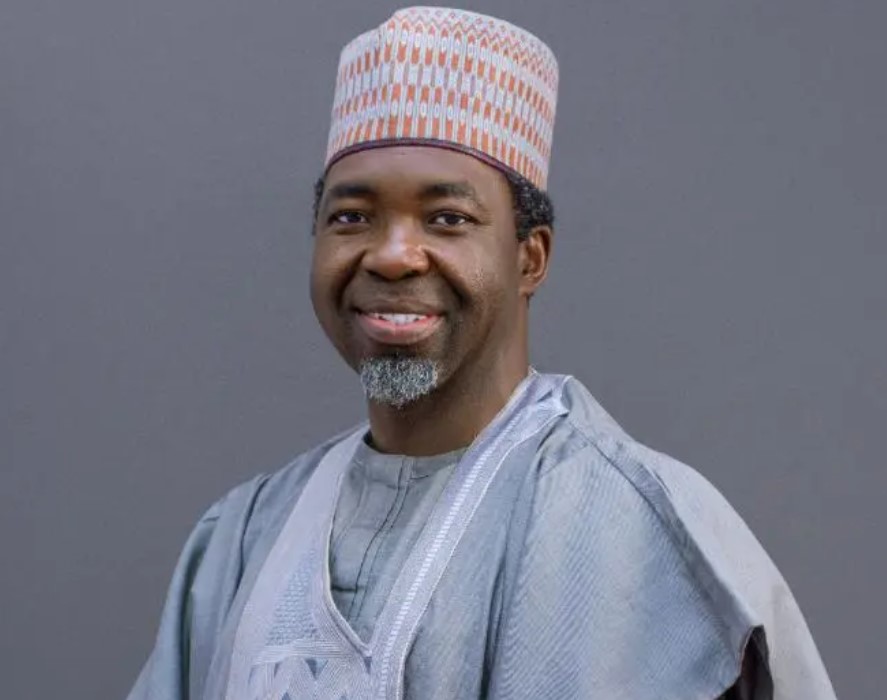Professor Aremu Calls for Ethical AI Adoption in Nigerian Healthcare

Renowned academic and Executive Director of Research Enterprise Systems (RES), Professor Fatai Aremu, has advocated for the ethical and inclusive integration of Artificial Intelligence (AI) in Nigeria's healthcare sector to enhance efficiency, accuracy, and accessibility of medical services.
Speaking at the Science Policy Engagement for Africa (SPEAR) forum in Nairobi, Kenya—organised by the Science for Africa Foundation alongside development partners and African research institutions, including RES—Professor Aremu highlighted how AI-powered technologies are revolutionising global healthcare systems. He emphasised their potential to transform medical diagnostics, streamline disease classification, optimise treatment planning, and reduce healthcare costs.
“AI is not just a tool but a catalyst for equitable healthcare delivery. Its ethical adoption can bridge gaps in Nigeria's medical infrastructure, ensuring no community is left behind,” Aremu stated during his address.
Exploring the theme of the event “Unveiling the Transformative Role of Artificial Intelligence in Advancing Global Health in Africa”, he maintained that Nigeria is witnessing a growing interest and investment in AI-driven solutions across sectors, including healthcare despite the challenges shortage of medical personnel, inadequate infrastructure, and slow diagnosis processes, which AI can help address. He acknowledged that the institutions such as the National Centre for Artificial Intelligence and Robotics (NCAIR) and National Information Technology Development Agency (NITDA) among others reflect the government's commitment to fostering AI innovation and development in the country.
At the event, Professor Aremu also highlighted the need for government policies and investments to support AI adoption in hospitals, clinics and medical research institutions while urging stakeholders, including policymakers, health professionals, and tech innovators to collaborate on developing indigenous AI-powered solutions tailored to Nigeria's health challenges. Nigeria's. large population, digitalisation trends, and increasing focus on AI for economic growth present significant opportunities for AI applications in healthcare. At the regional level, he stressed that AU Agenda 2063 identifies Science, Technology and Innovation (STI), including AI, as a crucial tool for achieving continental development goals.
Furthermore, he stressed the importance of training medical personnel in AI applications, ensuring ethical standards in AI-driven health care and addressing concerns related to data privacy and cybersecurity.
The call for AI integration in health care aligns with global trends, where countries are leveraging technology to improve health care outcomes, reduce costs, and enhance patient experiences. If effectively implemented, AI could play a transformative role in strengthening Nigeria's health care system and making quality medical services more accessible to the population.
Cloud Tag: What's trending
Click on a word/phrase to read more about it.
Taofik Abdulkareem Funmilayo Isiaka Oniwa Ashiru Sheikh Ariyibi Sidikat Uthman Ajibola Olota Of Odo-Owa Egbewole Apaokagi Suleiman Yahya Alapansapa Sidikat Akaje Overland Saad Omo\'ya Mahmud Ayinla Giwa Abdulraheem Yusuf Ibrahim Mohammed Bello Abubakar Fatimoh Lawal Quareeb Islamic Association Hassan Oyeleke Ibrahim Akaje Orire Shaykh Luqman Jimoh Folorunsho Alao A.O. Belgore High Court Ekweremadu Olupako Musa Yeketi Oro Grammar School Abdul Jimoh Mohammed Solomon Edoja Yusuf Lawal Ajase-Ipo Jumoke Gafar Aliyu Olatunji Ajanaku SAPZ Project Onilu Wahab Femi Agbaje Www.Kwarareports.com Yoonus Kola Olatinwo Kaiama Ilorin Saheed Akinwumi Sulyman Tejidini Abdulrazak Shehu Akorede Bolaji Aladie Revenue Court Kwara Pdp Olusin Of Ijara Isin Radio SBS Lateef Ademola Olatunji Bashir Adigun Olusegun Adeniyi Kudirat Arinola Lawal Ella Supreme Tissue Paper Halidu Danbaba Oba David Oyerinola Adedunmoye Muhammed Mahe Abdulkadir Ganmo Yahaya A Paniyaro Funmilayo Mohammed Chief Imam Of Omu-Aran Grillo Imodoye Writer’s Enclave Hassan Taiye Salam Wale Oladepo Ilorin Likeminds Foundation Samari Share Oke-Ode Hausa Siraj Oyewale Towoju Eghe Igbinehi Ahman Pategi Bisi Oyeleke Shaaba Lafiagi


